The lotus flower holds great significance in Vietnamese culture and is revered as the national flower. Its symbolism is deeply rooted in the traditions, beliefs, and values of the Vietnamese people. Known as the flower of the dawn, the lotus represents purity, commitment, and optimism for the future. In Buddhist culture, the lotus is considered a special flower and is chosen as the altar for Buddha due to its profound philosophical meanings. Let us delve deeper into the symbolic meanings of the lotus flower in Vietnam and explore its various cultural associations.
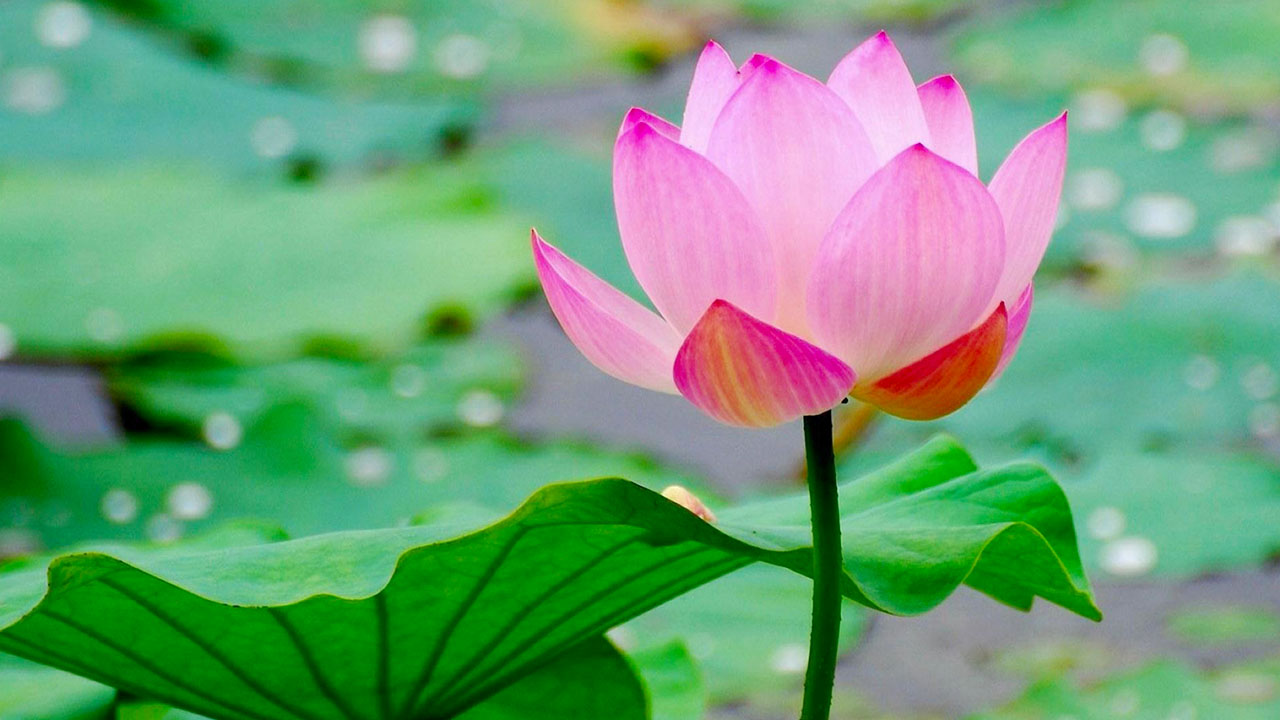
The Elegance of the Lotus: Symbol of Beauty Overcoming Darkness
The lotus flower represents beauty overcoming darkness in Vietnamese culture. Despite growing in murky waters and muddy marshes, the lotus emerges as a symbol of elegance and grace. The lotus actively purifies the water around it, emitting an elegant fragrance that captivates the senses. This transformation from a humble bud to a stunning bloom parallels the tenacity and resilience of the Vietnamese people, who strive for beauty and goodness even in the face of challenging circumstances.
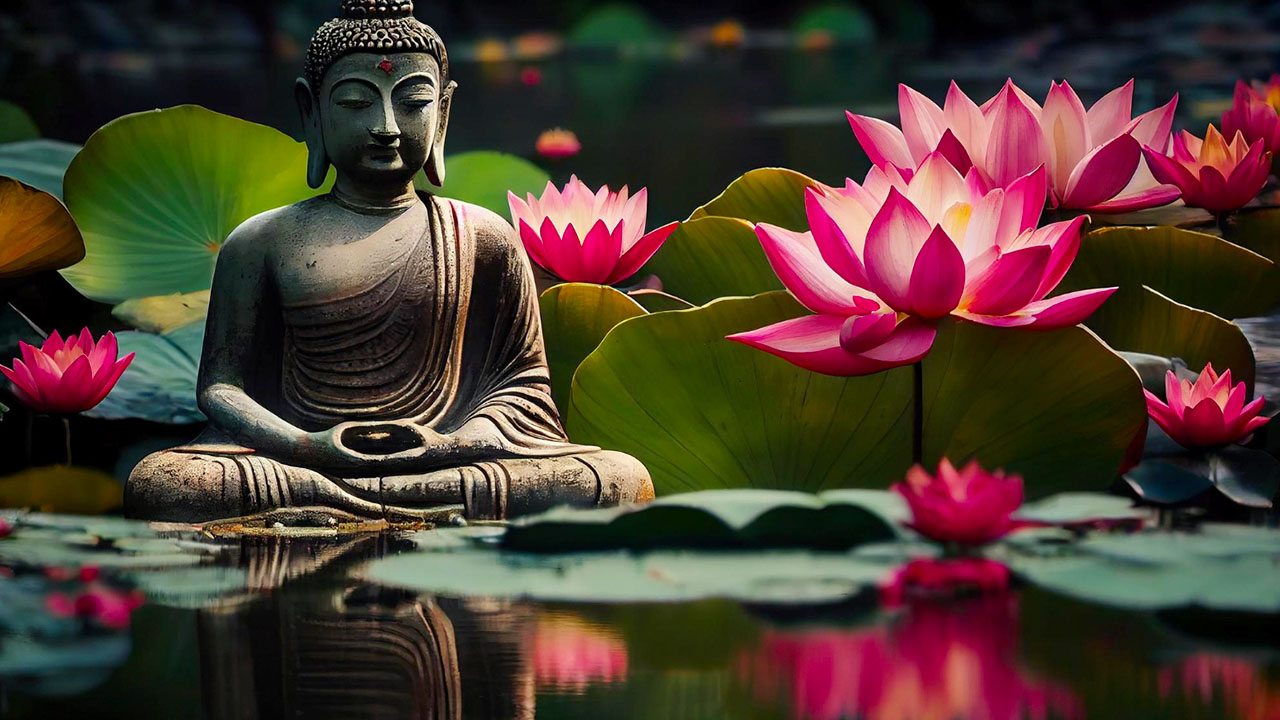
The Philosophical Significance of the Lotus in Buddhism
In Vietnamese Buddhism, the lotus flower holds immense symbolism and is considered a sacred representation of the teachings of Buddha. The characteristics embodied by the lotus – purity, cleansing, demureness, intactness, and perseverance – align with the virtues that Buddha sought to impart to his followers. The growth of the lotus from the depths of dark marshes symbolizes the journey of individuals on the path to enlightenment, overcoming obstacles and transforming into beings of beauty and purity.
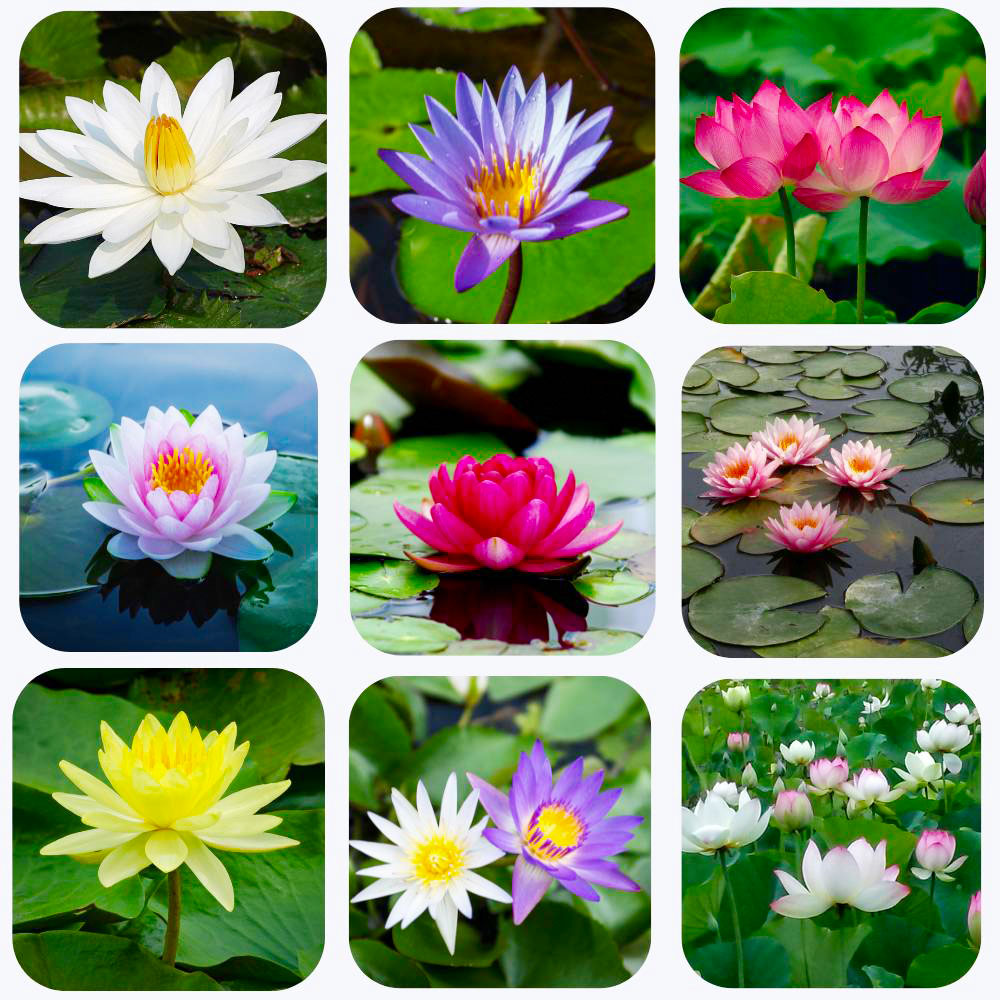
Lotus Colors and Their Distinct Meanings
The lotus flower comes in various colors, each with its own unique symbolic meaning in Vietnamese culture.
- Pink Lotus: Representing Buddha and Buddhism
- The pink lotus holds a special significance in Vietnamese Buddhism as it represents the sacred figure of Buddha. It embodies enlightenment, spiritual awakening, and the teachings of Buddhism.
- White Lotus: Symbolizing Purity of Mind and Spirit
- The white lotus is associated with purity, divine beauty, and spiritual perfection. It signifies a pure mind and spirit, untainted by negative influences.
- Blue Lotus: Reflecting Wisdom and Freedom
- The blue lotus is a symbol of wisdom, knowledge, and freedom. It represents the attainment of enlightenment through deep reflection and the breaking free from the constraints of ignorance.
- Gold Lotus: Signifying Enlightenment
- The gold lotus represents the highest level of enlightenment that one can achieve. It signifies the attainment of spiritual liberation and the discovery of profound wisdom.
- Purple Lotus: Embodiment of Spirituality and Mysticism
- The purple lotus is associated with spirituality and mysticism. It represents the profound connection between the physical world and the spiritual realm, inspiring individuals to seek higher truths.
- Red Lotus: Expressing Emotional Attachment, Love, Passion, and Compassion
- The red lotus symbolizes emotional attachment, love, passion, and compassion. It represents the strong bonds of affection and the capacity for empathy and understanding.

The Significance of the Lotus Flower in Vietnamese Culture
In Vietnam, the lotus flower holds a special place in the hearts of the people. Its beauty and symbolism make it highly regarded and celebrated in various aspects of Vietnamese culture.
Decoration and Gifts
Lotus flowers are widely used for decoration purposes, adding a touch of elegance and sophistication to homes, temples, and public spaces. The exquisite beauty of the lotus petals brings a sense of tranquility and calmness to the surroundings.
Moreover, lotus flowers and motifs are often incorporated into traditional artwork, handicrafts, and textiles. From lacquerware to silk embroidery, the lotus serves as a symbol of Vietnam’s cultural heritage.
Additionally, lotus flowers are popular gifts, representing good luck, purity, and prosperity. Gifting a lotus flower signifies well-wishes for the recipient’s future endeavors and serves as a token of appreciation.
Culinary Delights
The lotus flower’s beauty extends beyond its visual appeal to its culinary uses. In Vietnamese cuisine, various parts of the lotus plant are incorporated into dishes and beverages, offering unique flavors and textures.
One notable example is lotus tea, a fragrant and refreshing drink made by infusing dried lotus blossoms in hot water. Lotus tea is known for its earthy aroma and delicately sweet taste, making it a favorite amongst tea aficionados.
Lotus seeds, found within the iconic seed pod, are also culinary delights. They can be found in Vietnamese desserts, such as lotus seed paste, lotus seed pudding, and lotus seed soup. These dishes are cherished for their subtle sweetness and creamy texture.
Lotus is also used in naming businesses, for example we “Sen Tonkin” – The restaurant boasts a palatial space capable of hosting up to 300 guests, including 4 large dining rooms and 3 splendid private rooms. Sen Tonkin harbours the passion of fostering an immersive Vietnamese cultural space, where the modern converges with the traditional in beautiful harmony.
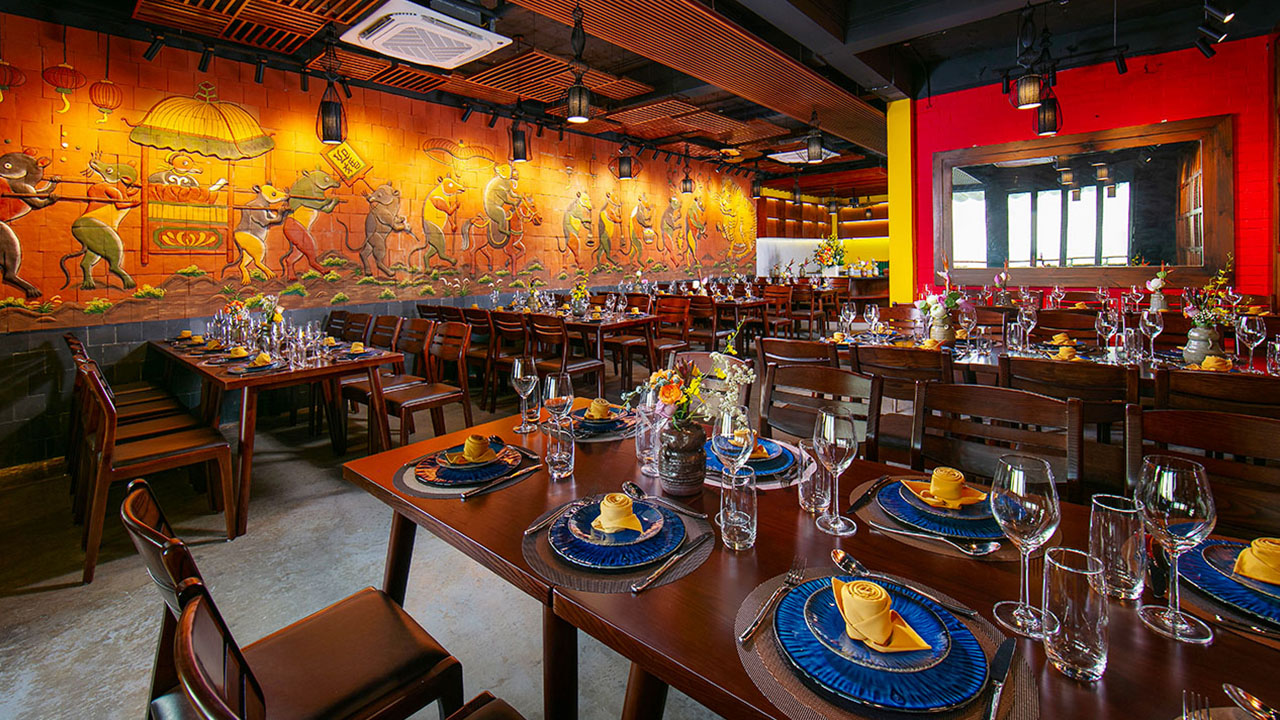
Guests are invited on a culinary journey to explore the vast breadth of Vietnamese cultural identities imbued in the dishes from each region of the country. Each dish can carry a different kind of experience: the longing for a distant past, the desire to discover the unique cuisine of the Northern region, or the simple wish to taste the authentic flavours of the countryside food, …
Spiritual and Cultural Significance
The lotus flower’s deep-rooted symbolism in Buddhist culture contributes to its role as a focal point for spiritual activities and ceremonies in Vietnam. Lotus flowers are often offered at Buddhist temples as a way to honor and pay respect to Buddha. They create an atmosphere of serenity and devotion, inviting worshippers to reflect and find inner peace.
The annual Huong Pagoda Festival is a significant cultural event in Vietnam that embodies the reverence for the lotus flower. Pilgrims from all over the country converge at Huong Pagoda to pray for good luck and prosperity. The journey involves a boat trip through scenic landscapes, where the lotus blooms in abundance. It is a captivating sight that reminds the pilgrims of the beauty and endurance of the lotus.
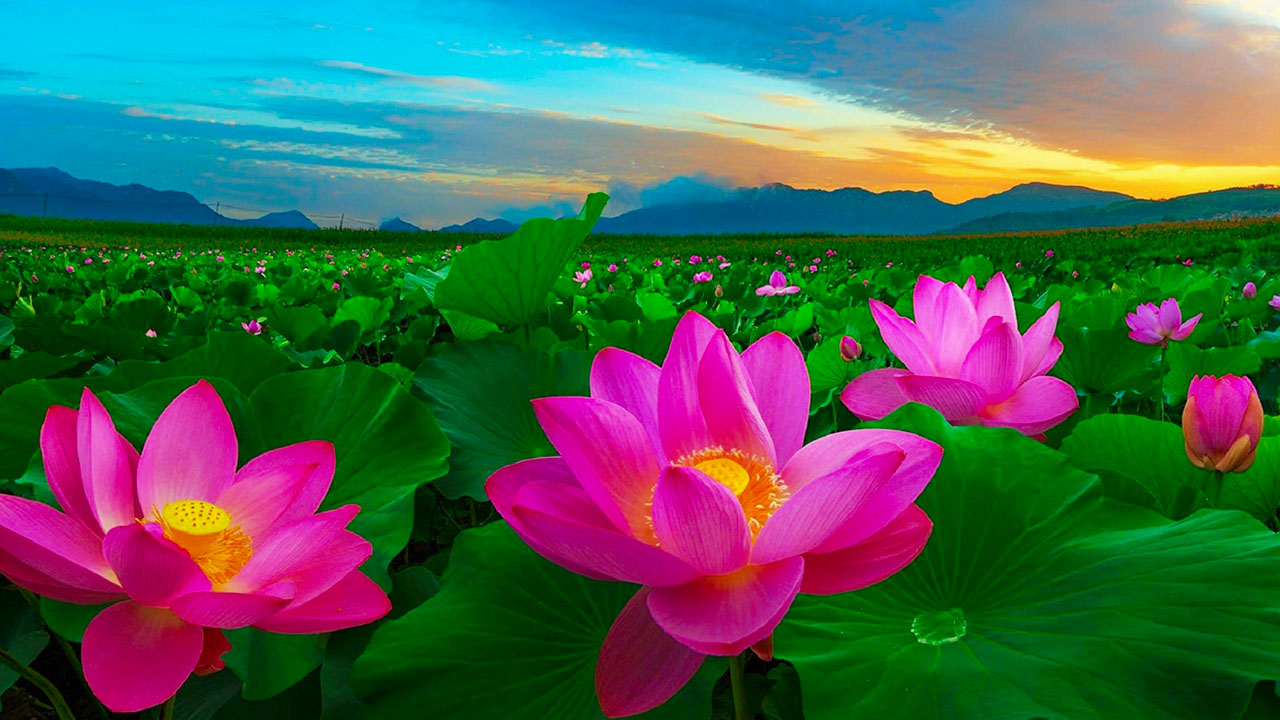
Frequently Asked Questions (FAQs)
- What does the lotus flower symbolize in Vietnamese culture?
- The lotus symbolizes purity, commitment, and optimism for the future. It represents beauty overcoming darkness.
- Why is the lotus chosen as Buddha’s altar?
- The lotus embodies the elegance and good behaviors that Buddha taught. It serves as a visual reminder of Buddha’s teachings and the values that followers strive to embody.
- How does the lotus grow in challenging conditions?
- The lotus grows from dark marshes and purifies the water around it. Despite the difficult conditions, it emits an elegant fragrance and blossoms into gorgeous flowers.
- What are the different symbolic meanings associated with the lotus flower’s colors?
- Pink represents Buddha and Buddhism, white represents purity of mind and spirit, blue represents wisdom and freedom, gold represents enlightenment, purple represents spirituality and mysticism, and red represents emotional attachment, love, passion, and compassion.
- How is the lotus flower used in Vietnamese culture?
- Lotus flowers are used for decoration, gifts, and culinary delights. They hold special significance in religious and cultural ceremonies.
- What is lotus tea, and why is it popular in Vietnam?
- Lotus tea is a fragrant and refreshing drink made by infusing dried lotus blossoms in hot water. It is popular for its unique aroma and delicately sweet taste.
Conclusion
The lotus flower holds immense symbolic meanings in Vietnamese culture. Its association with purity, commitment, and optimism for the future resonates deeply with the Vietnamese people. As the national flower, the lotus embodies the resilience, elegance, and good behaviors that Buddha sought to teach. Whether blooming from dark marshes or adorning altars, the lotus flower serves as a powerful reminder of the pursuit of beauty and enlightenment despite the challenges of life. Its enchanting colors and fragrances further enhance its appeal, making it an integral part of Vietnamese culture, from decoration to culinary delights.


